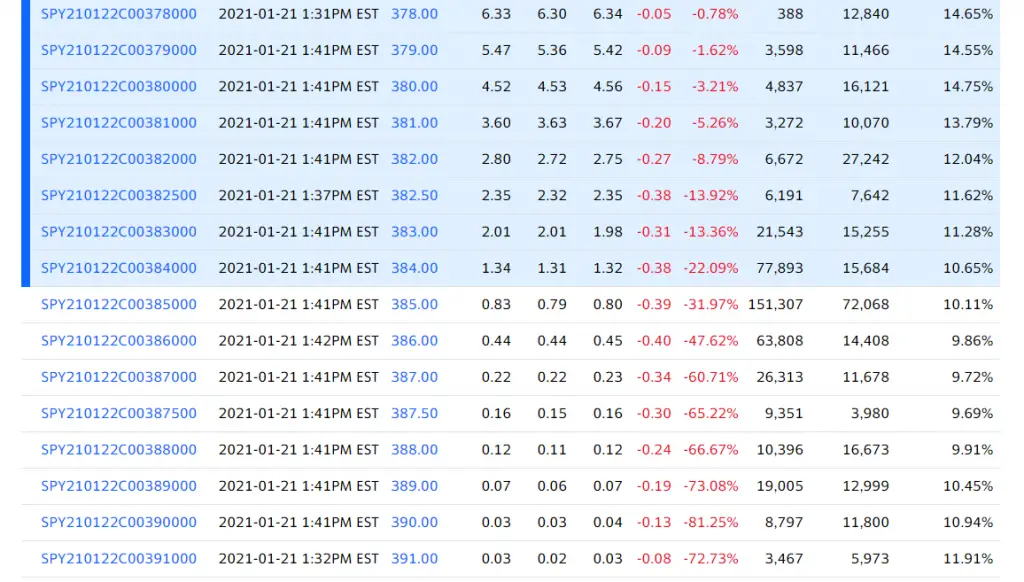To make money with option contracts a trader must be right about many factors based on both the underlying stock and the option contract chosen to buy or sell short.
Here are the top ten considerations to consider before trading an option contract.
Bullish option traders can either buy call options or sell put options, both of these plays are betting on higher prices. Bearish option traders can ether buy put options or sell call options, both are betting on lower prices.
The strike price is almost always the most important consideration when trading options. Your option strike price is the target you are aiming at with your option trade. If you are long an option contract the price of the underlying stock has to move enough in the direction of your exercise price fast enough to create a profitable trade through growing delta or intrinsic value. If you are short an option contract then your stock has to move away from the strike price fast enough to create a profit through theta decay.
The other most important factor is the expiration date of the option. Option traders are working against the clock. Long option traders have to reach their price target before the option expires to be profitable. Short option sellers need price to stay away from their target price until expiration to make money. Options are bets on price within set time frames.
The probability of success of each option trade is different based on the how close the option strike price is to the current price. Higher delta creates faster and bigger potential gains based on the probabilities of a stock being in-the-money by expiration. In-the-money options have a high probability of expiring with intrinsic value so react faster to price moves. At-the-money options have a 50% chance of expiring in-the-money so react faster to price moves. Out-of-the-money options have a low chance of expiring in-the-money so react much slower to price moves, they require a big move in their favor to grow in value.
The farther away an option is to being in-the-money the lower the probability of success but the higher the percentage gain will be if it moves to its strike price.
The deeper in-the-money an option is the more expensive, the farther out-of-the money is the least expensive. The cost will affect your ability to leverage your trading capital through trade size.
An option can be a 100% loss as they are not ownership in an asset they are just bets on a price inside a time frame. Your option trade should be limited to the amount of speculative capital you are willing to risk on a trade at entry. Many times options can be all or nothing trades.
The farther away an option contract is from the present time and the current price of the stock the less liquidity it is likely to have. Front month or front week and at-the-money options have the tightest bid/ask spreads with the highest open interest in most option chains. The farther away you go in time and price the more it costs to enter and exit a trade with wider bid/ask spreads.
Options can be structured for your market signal. If you want to buy a stock at a specific price you can sell a cash secured put for that price level and get paid to own that stock at your entry price if it is put on you. If you think your current stock position is going to stay in a price range you can sell covered calls on it and let it be called only at your profit target. If you think volatility is going to decline you can sell put options, or buy put options if you think volatility will expand. The structure of option plays can express your market signals, sentiment, and technical analysis.
Your option play should reflect the price target through the strike and the time frame through the expiration date of the market price action bet you are making.
I created my Options 101 eCourse to give a new option traders a shortcut to a quick and easy way to learn how stock options work.
I also wrote a quick and easy book Options 101 for those interested.

